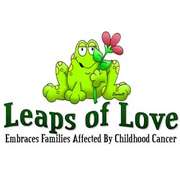4 Frequently Asked Questions About Pediatric Gliomas

Gliomas are types of brain tumors, which make up about 20% of all childhood cancers. Luckily, they are treatable. If your child has been diagnosed with a glioma, it’s natural to have many questions about the condition. As you work with your family doctor to answer them, here is some additional information you may find helpful.
What You Should Know About Pediatric Gliomas
How do they form?
Gliomas are the most common brain tumor in both children and adults. They form when the glial cells in the brain grow abnormally. Unfortunately, scientists have yet to discover what makes cancerous cells grow.
What are the types of gliomas?
 This type of childhood cancer is divided into four grades. Grade 1 and 2 are low-grade, which means the cells divide and multiply more slowly. Grades 3 and 4 are considered high-grade, meaning the affected cells multiply at more aggressive speeds. The higher the grade, the more severe the glioma is.
This type of childhood cancer is divided into four grades. Grade 1 and 2 are low-grade, which means the cells divide and multiply more slowly. Grades 3 and 4 are considered high-grade, meaning the affected cells multiply at more aggressive speeds. The higher the grade, the more severe the glioma is.
What are some of the treatment options?
Your pediatric oncologist will work with you to create a custom treatment plan. Radiation therapy is one of the most common treatments. Chemotherapy drugs taken as pills are also common.
The number of treatments your child undergoes will depend on the type of glioma they have and its severity. Other common methods include surgery and chemotherapy. A combination of these may be needed.
What happens if it’s successfully treated?
After the glioma has been treated, your child will be monitored to ensure the cancer doesn’t return. Monitoring may include imaging scans and blood tests, depending on the type of glioma your child had.
They may also require therapy to heal from any cognitive side effects of the condition. These include speech difficulty and problems with memory, learning, or attention.
If your child has been diagnosed with childhood cancer, find support at Leaps of Love, Inc. Serving families in the St. Louis Metropolitan Area, they hold many events to bring impacted families together, including weekend retreats and family fun nights. They’ll also help you connect with a community of other survivors for ongoing support. Learn more about their programs online or call (618) 410-7212 to join today.
About the Business
(4 reviews)
Have a question? Ask the experts!
Send your question

